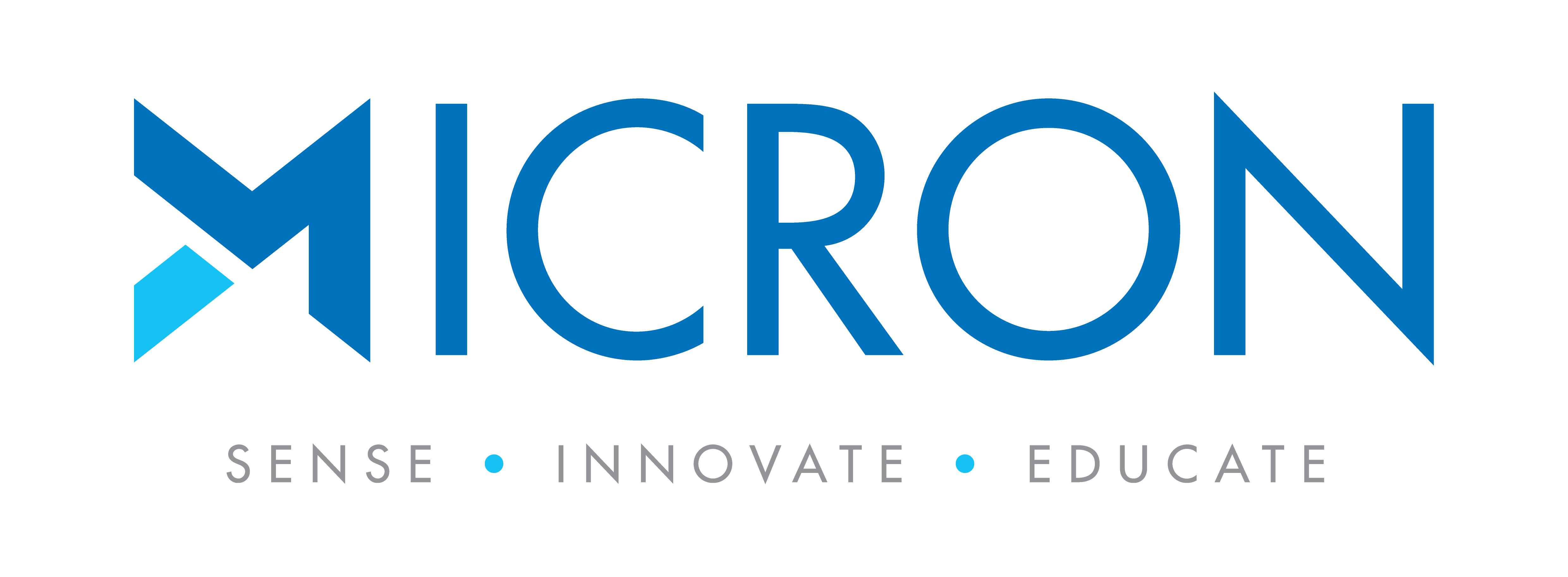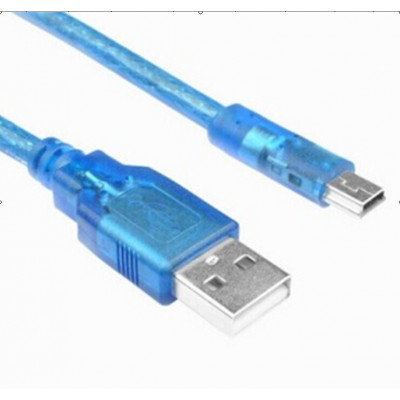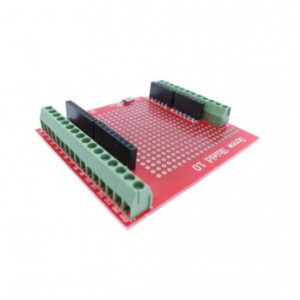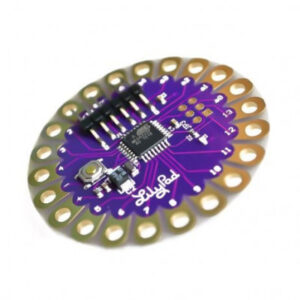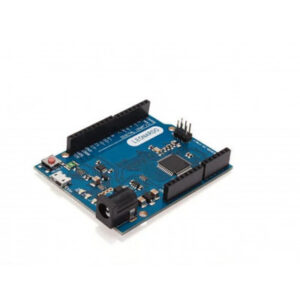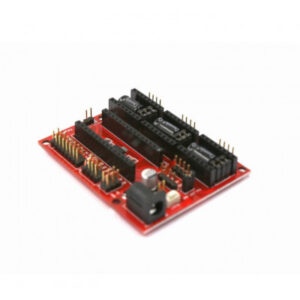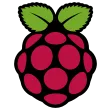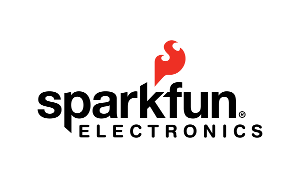USB A Male to mini B Cable – Cable for Arduino Nano
USB A Male to mini B Cable – Cable for Arduino Nano
Related products
-
Arduino, Arduino Shield's
Proto Screw Shield 1.0 For Arduino Uno
0 out of 5(0)The Proto Screw Shield is the ultimate breakout board for an Arduino. It combines a prototyping shield with a full set of 3.5 mm screw terminal blocks. The proto shield part lets you build custom circuitry and then you can easily & securely connect wires and sensors to the terminal blocks. Great for panel mounts, buttons, sensors, enclosures etc.
Proto Screw Shield is Pre-Assembled so that it can be directly screwed onto the thread posts. It isreliable and convenient.
The Arduino Proto Screw Shield extends all pins of the Arduino out to 3.5mm pitch screw terminals. It also has a lot of the utility provided by Arduino Protoshield, including a large prototyping space of both connected and unconnected 0.1 spaced through-holes, a reset button, LED for D13 pin indicating.
SKU: n/a -
Arduino, Arduino Development Board's
Lilypad 328 Main Board Atmega328P 16M Compatible with Arduino
0 out of 5(0)The LilyPad 328 ATmega328P Main Board 16M is an Arduino-program micro-controller design to be easily integrated into e-textiles and wearable projects. It offers the same functionality you find in other Arduino boards, in a lightweight, round package design to minimize snagging and profile. With wide tabs that can be sewn down and connect with conductive thread.
The LilyPad Arduino consists of an ATmega328 with the Arduino bootloader and a minimum number of external components to keep it as small (and as simple) as possible.
This board will run from 2V to 5V and offers large pin-out holes that make it easy to sew and connect. Each of these pins, with the exception of (+) and (-), can control an attached input or output device (like a light, motor, or switch).
Each LilyPad was creatively designed to have large connecting pads to allow them to be sewn into clothing. Various input, output, power, and sensor boards are available. They’re even washable!
SKU: n/a -
Arduino, Arduino Development Board's
Leonardo R3 Board – Compatible Model High Quality
0 out of 5(0)The Leonardo is an open source precise microcontroller board based on the ATmega32U4 SMD chip. It has 23 digital input/output pins (of which 7 can be used as PWM outputs and 12 can be used as analog inputs), a 16 MHz crystal, a USB connection, a power jack, an in-circuit system programming (ICSP) header, and a reset button. It contains everything needed to support the microcontroller; simply connect it to a computer (or appropriate wall power adapter) with a Micro USB cable or power it with a AC-to-DC adapter or battery to get started.
The Leonardo differs from all preceding boards in that the user-programmable ATmega32U4 AVR microcontroller has built-in USB functionality, eliminating the need for a secondary processor. This makes the Leonardo more versatile: in addition to supporting a virtual (CDC) serial/COM port interface, it can appear to a connected computer as a mouse and keyboard.
SKU: n/a -
Arduino, Arduino Shield's
CNC Shield V4 3D Printer Expansion Board for Arduino
0 out of 5(0)CNC shield V4 needs to work with the Nano board. It can be used as a drivers expansion board for engraving machines and 3D printers. It has in total 3 channel slots for A4988 stepper motor driver modules (not included) for driving 3 channels of stepper motors.
Each channel of stepper motor only needs 2 IO ports, which means 6 IO ports are sufficient to manage 3 stepper motors. This shield can make quick work for managing stepper motors in your project.
SKU: n/a

